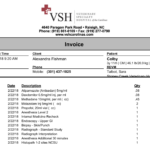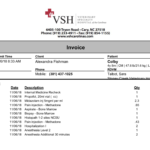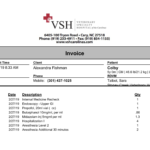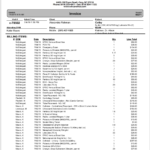Maybe you can talk to your vet about a long term sensitive stomach food to try? Or make sure it doesn’t correlate with any of the preventatives you give. (And if you’re aren’t giving them you should check to make sure it isn’t intestinal worms with a fecal sent to the lab for analysis). Also some dogs benefit from probiotics long term and gi protectants. I can’t tell you what’s going on with your pup but I do think there are lots of low cost options to try to figure out what it might be. Also you should remove all snacks and treats for a month or two to see if this helps. I worry about gi issues and pancreatitis. In some cases there is excessive gas so a diet change might help. Talk to your vet about all of these. Let me know what happens. Good luck.
Have a 16 year old cat that has been very sick with so much mucus coming out of his nose. Been sick for for a while now. Gave him 10 days of amoxicilin from vet. He’s having a really hard time breathing from all the mucus so we have Ben doing everything possible to keep him alive cause he is a fighter. He stops breathing a lot cause h’s so clogged it’s heart breaking. We give him warm steam and humidifier along with taking him outside to get more oxegen. He stays up most of the time cause when he puts his head down it blocks his airways. I have been pulling the discharge out with a small eyedropper when the bogies show. Really hoping he can beat the illness and get better soon but vets are taking all our money with doing much. We are on limited income. I think he needs a nasal flush maybe but can’t do it myself cause of lack of knowledge and medical equipment. Please contact me at 619 453 1747 if you have any ideas. Some days he looks like he won’t make it but then other days his eyes look so clear and beautiful. We have been giving him syringes of water and blended food to help him k==p the weight on cause he stopped eating a few days ago from lack of smell. He never did drink much water but maybe cause there was some underling issue. I have a Web cam and could show you or talk to someone if they care to reach out. He is a huge part of the family for many years and I know he wants to live longer but unless he gets better soon we will be at a great losss. He has a vet appointment today but I don’t think they will offer many answers besides sending him to more specialist we can’t afford. He has been sneezing fluid for about a month. He is the sweets cat ever and would do anything to keep him around.
Comments
Our 15lb Chihuahua/Maltese mix has a gurgling belly. You can hear the noise just being in the same room as him. He is super uncomfortable, sits down for a moment- you hear a gurgle and he shoots back up and circles then sits down again. It happens about once a month and lasts for about 12-24hrs. We have taken him into our vet a few times for it but by the time we take him in it has subsided. I believe they typically give him a one time dose of an antiemetic. Most of the time we have him leashed & am outside with him so we do not believe he is eating something. No table food, eats science diet. Has regular, formed, bowel movements. Unsure of what to do or how to make him feel better! We can not afford to keep taking him to the vet & not have answers of why this keeps happening.
Comments
Hi everyone I’m in desperate need of some help here! I have two cats (one 4YOM and one 1.5YOF both fixed) that keep peeing outside the litter box. Unfortunately it has been confirmed that they both go outside the litter box. The male likes going on things such as the curtains by the front window, the trash can by the back door and in my pretty much anywhere in my niece’s play room. The female likes going on dirty clothes, floor mats, and pretty much anything in both my niece’s playroom and bedroom. Unfortunately this problem has been going on for almost a year with no real improvements.
Some more information about the cats. I’ve had the male cat since birth. He is healthy barring anything showing up at the next vet visit. The female was adopted about a year ago from a local shelter and is also healthy. We have three litter boxes placed throughout the house but for the past 2ish months they’ve only used one of them. We do unfortunately have feral cats outside (caught two and had them neutered.)
I really need some help. I ripped up all the carpet in the house and replaced it with hardwoods. We’ve thrown out hundreds of dollars of clothes and toys. I’ve gone through at least $100 worth of enzyme cleaner. We swapped the litter boxes. We swapped the litter we use. We swapped diets. We close off most of the house during the day. I even attempted (much to my heartbreak) of following other online advice and confining them separately to a big dog crate for a week to retrain them on the litter box.
Nothing has worked and I’m at my wits end. I called my vet today to ask for a behaviorist but they suggested I try this resource first.
Comments
Our 4 year old Chow/Australian Shepard mix male dog has been scooting to the point he has lost hair on his hind legs /bottom – resembling a baboon. The skin is normal and not inflamed. We had his anal glands expressed, added pumpkin to his diet and had him checked a few weeks ago and his glands were ok. He has started scooting again. We were told he may have allergies and have put him on 1 diphenhydramine 25 mg daily. He stopped scooting for a few weeks, but is back at it again. Advice and suggestions are appreciated. Thank you.















Hello,
It sounds like a nasal flush might be helpful. It also sounds like it is time to try to get a diagnosis to make sure this is just infection and not something more insidious like cancer. Has your cat been tested for FELV or Fiv? Have they checked or talked about a polyp? Can you call around and ask for help from any of the rescues or shelters? Or even for payment plans or billing? For cases like this I try a few antibiotics (usually clavamox, doxy and then azithromycin), and then talk about looking for a polyp. After that I think these guys are either chronic rhinitis or I worry about herpes or cancer. That is my typical work up if people can not afford advanced imaging or cultures and biopsy. Ask your vwt about all of these. Also we are now trying diluted Cerenia nasal drops too. Maybe ask about them? Please keep me posted and very best of luck.
Not any test done cause mom is on ssi limited income and I’m disabled without income either. Will try more antibiotics if u think it might help. Has bad teeth but not sure extent. Was thinking it could be infection of teeth possibly cause he can’t eat dry food very easy. Haven’t tested for much anything really. I don’t think it’s fiv case when I open his mouth his lung’s seem strong and good with no sounds. I sit by him all day and pull boogies out with eye small dropper hoping it helps. Hydrating helps the mucus come out more I think.. will ask around for assistence like you recomend. He might have herpes. Had a lot of fluid come of eyes out when he was more stuffed up. Will discuss polup. Will defiantly look into ceria drops. I feel once the mucus is gone he would breath much better . When I pet him and he purrs sometimes he breeds through his mouth and get way more oxegen to his brain. Love goes a long way with this cat. Weird how just petting him would open his lungs for such a long time. When he stops breathing from weekends I’ll open his mouth at times, don’t want him to go brain dead before he gets help. I been literally with him for 3 days 24h a day to monitor his breathing and help him any way I can. Petting him goes a long way . Thank you so much for the valuable feedback, it is greatly apprecieted. Found your site from a polyp removal video on YouTube and it seemed like you had a lot of compassion to help people with low funds. Very cool of you to help people like that. Your service to the world is immeasurable!!!
Took kitty to vet. Got the cerenia you mentioned. Helped a lot last night but waiting for 24hr to use it again. Hes all dry now with dark green booties. Very thick.. vet said he might have a tumor in his nasal area because his one nostril is larger than the other with slight unevenness. Hes doing mostly mouth breathing today with many sneezes. Gave him a baby saline solution today with minimal effect. Also tryed steam from tea pot. When he falls asleep he stops breathing from being blocked many times through night. Also got more antibiotics . Vets said it’s not fungal. She recomended if he does not get better think about euthinisation. He was a lot better yesterday and showing so much love. Was back in my room all yesterday instead of bathroom but a lot of snorkels. .limited on funds and she said it would be a big workup and more tests before s nasel flush could be considered because at this point she would not put him under anesthesia. Is there a way I could check at home for the back of throat polyp? Not expecting miricals but it is really hard for me to give up on the little guy. Didnt think he would make it this long but I dont know how long sickness takes to run its course. I wish I could try a nasel flush but is cost prohibitive considering all the workup tests required. He slept by me all night for the first time in a week. Syringes with water seem to help the dryness but right now its ultra dry. Can I give him the carina drops before 24 hours is up?
Best regards
Cerenia works well but it weres off. At night he gets stopped up bad. Can I use Cerenia more than once every 24h? I’m sure the answer in no but its hard to sleep knowing hes not getting oxygen at time..
I wish I could try the nasel flush but cant afford it with all the added tests beforehand. Do nasel flushes always make cats nose blead and how harmful is it for there nose to blead with tubes that are used?
Puffy doing a bit better. When he was barely breathing a few days I noticed him biting the carpet cause he was suffering g so bad. Thought it might be his teeth cause symptoms are almost the same from some research. Cat is much healthier now due to diligent care. nose removing mucus with warm rag when showing discharge. Hes on cerenia, baby saline nasel drops and new antibiotics. We still feed with syringe and hes finally gaining weight. We have been slowing adding more food to his diet. He now drinks more and eats more on his own but he has a hard time breathing while eating and drinking so its limited. We been trying to discontinue humidifier slowly but I feel it helps him breath and loosens mucus. Hes very tired and less social these days but better than he was a few days ago. My main goal is to help him breath better soon. Could be one of three things. Either tumor behind nose cause nostrils are uneven but better a little now. Infected tooth, or possibly nasel polyp. Hes very skinny to the bone from not eating before but food syringes seem to help a lot so far. Mucus is much thicker and stronger making it harder to come out of his nose. Might try a animal safe decongestant I seen another vet use today along with lavender oil in humidifier. How do u feel about vicks?